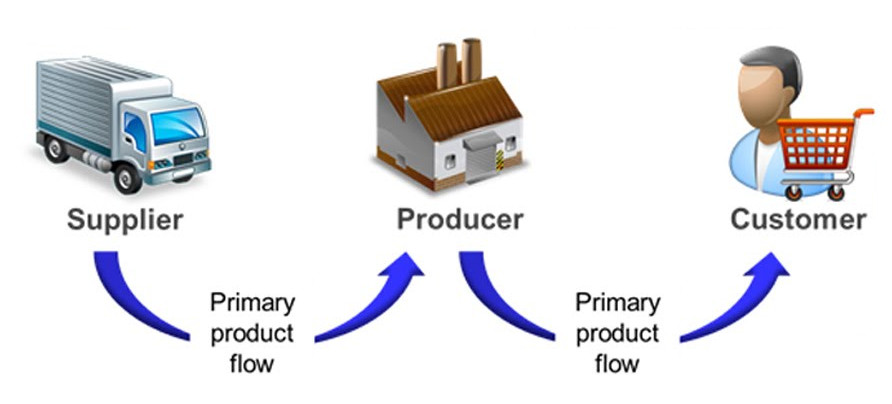Every supply chain has four participants: suppliers, manufacturers, and customers. A supply chain is made up of a corporation and its suppliers and consumers in its most basic form. A simple supply chain is made up of these three sorts of organisations – supplier, company, and customers.
Every supply chain has the following participants: suppliers, manufacturers, and customers. A supply chain is made up of a corporation and its suppliers and consumers in its most basic form. A simple supply chain is made up of these three sorts of organisations – supplier, company, and customers.

Suppliers:
A supplier is a person or company who sells a product or service to another company. A supplier’s job is to offer high-quality products from a manufacturer to a distributor or retailer for resale at a reasonable price.
A supplier is an organisation that provides goods and services to another. This entity is a member of a company’s supply chain, and it may contribute the majority of the value in its products. A supplier is a person, business, or organisation that sells or provides goods or equipment to customers.
A supplier is a person or business that sells goods or services to another business. A supplier’s job is to provide a distributor or retailer with high-quality products at a fair price from a manufacturer.
A supplier is a company that sells goods and services to another company. This company’s supply chain includes this entity, which may contribute the majority of the value in its products. A supplier is someone, a company, or an organisation who sells or rents items or equipment to consumers.
Manufacturer:
Manufacturing is the process of turning raw materials into finished things using labour, equipment, tools, and chemical or biological processing or formulation. It is the essence of the economy’s secondary sector. Any industry that uses manual labour or machines to create goods from raw materials and is usually carried out in a methodical manner with a division of labour. Manufacturing, in a broader sense, refers to the large-scale manufacture or assembling of components into completed goods. Aircraft, vehicles, chemicals, clothes, computers, consumer electronics, electrical equipment, furniture, heavy machinery, refined petroleum products, ships, steel, and tools and dies are among the most important manufacturing industries.
A business establishment that engages in manufacturing or production activities. Manufacturing can be defined as an activity that adds value to a material by leveraging a variety of capabilities, allowing for several uses of that substance. Each stage of the production process adds to the overall value. SCM software establishes processes and workflows to manage the data that suppliers and clients require.
Procurement, fulfilment, and PO requests, as well as inventory, warehousing, and shipping/logistics management, are all examples of this. SCM’s overarching purpose is to reduce inventory levels while maintaining service levels and to make manufacturing as lean as possible.
Customer:
A customer is an individual or business that purchases another company’s goods or services. Customers are important because they drive revenues; without them, businesses cannot continue to exist. In sales, commerce and economics, a customer is the recipient of a good, service, product or an idea – obtained from a seller, vendor, or supplier via a financial transaction or exchange for money or some other valuable consideration.
